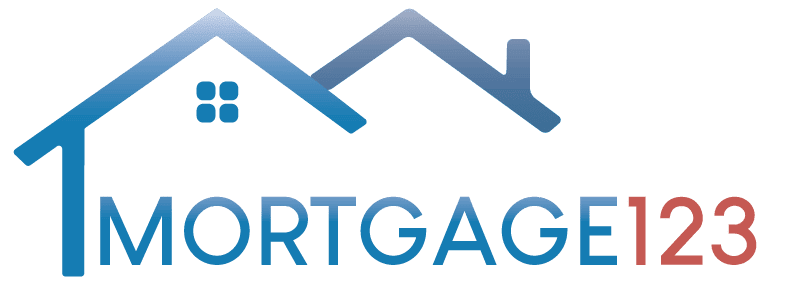
Public Sector Mortgage
Mortgage123 has been specialising in mortgages for public sector employees, so we know all the specific requirements, such as employee pay scales, overtime and allowances.

Top Tips
In order to get a mortgage, you have to provide proof that you can repay it. So you’ll need to provide proof of long term employment. Casual employment and job seeker allowances are not accepted as proof of employment.
Contract workers need to provide proof of two rolling contacts.
If you are in receipt of variable income, such as shift allowance, overtime, etc., by providing two years employment detail summary, we can take 100% of your variable income when calculating a mortgage.
What's different about public sector mortgages?

Basic Pay
Basic pay and variable income will be taken into account. However, we can increase your mortgage approval if you have moved up the pay scale while still in approval.

Variable Pay
Variable pay consists of many items, such as location allowance, shift allowance, bank holiday pay, even boot allowance for garda.

Probation Period
In the case of probation periods, they will include existing public sector employees promoted or transferred on 12 months’ probation. Whereas new entrants will be determined on a case-by-case basis, depending on their employment history.

Contractual Allowances
100% of your contractual allowances can be applied. This will mean you will be able to take out a larger mortgage if needed.

Gift
100% of the deposit can be gifted provided repayment capacity is evident.

Maximum Age
The maximum age at mortgage expiry has increased up to 70 and no proof of pension is required. There can be up to 4 individuals per application which will give more flexibility for applicants.
How does it work in practice?
Public Sector Mortgage Example
- Mary is a teacher who needed to borrow €180,000 to purchase her first home.
- As a teacher on point 6 of the salary scale and earning €40,942 she was limited to borrowing €163,768 based on 4 times her income.
- We sourced a lender who will allow multiples based on 2 points up the salary scale.
- Mary’s earnings were now based on point 8 of the salary scale, equating to €44,873 and granted her approval to borrow €179,492.
Top Tips
In order to get a mortgage, you have to provide proof that you can repay it. So you’ll need to provide proof of long term employment. Casual employment and job seeker allowances are not accepted as proof of employment.
Contract workers need to provide proof of three rolling contacts. If you are in receipt of bonuses or commission income, lenders will calculate an average over a period of time.
You need to eat, sleep and have fun once the mortgage is paid, so don’t over extend yourself.
Public Sector Mortgage FAQs
A mortgage is simply a long-term loan that’s used to pay for a house.
A first time buyer is defined as a borrower to whom no housing loan has ever before been advanced. Where the borrower under a housing loan is more than one person and one or more of those persons has previously been advanced a housing loan, none of those persons is a first-time buyer. (Central Bank of Ireland).
Central bank deposit rules require a 10% deposit for first time buyers. So if the value of your property is €200,000, you’d need a deposit of €20,000.
With a fixed rate mortgage, your interest rate and monthly repayments are fixed for a set time as agreed between the lender and borrower.
Although a fixed rate means your repayments cannot increase for a set period of time, your repayments will not fall during the fixed rate period. As a result, you could miss out on lower interest rates and lower repayments. Fixed rates may cost more over the long run but they offer peace of mind as you know your repayments will not rise during the fixed rate period.
Variable rates offer the most flexibility. They allow you to increase your repayments, use a lump sum to pay off all or part of your mortgage or re-mortgage without having to pay any fixed rate breakage fees.
However, because variable rates can rise and fall, your mortgage repayments can go up or down during the term of your loan.
Your repayments will depend on how much you borrow, the term or length of your mortgage as well as the interest rate that you’re charged.
LTV, or loan-to-value, is all about how much mortgage you have in relation to how much your property is worth. It’s normally a percentage figure that reflects the percentage of your property that is mortgaged, and the amount that is yours (the amount you own is usually called your equity).
For example, if you have a mortgage of €150,000 on a house that’s worth €200,000 you have a loan-to-value of 75% – therefore you have €50,000 as equity.
The process can be daunting so it makes sense to find a mortgage broker that can take the pressure off. A good advisor will simplify the process, gather all your information, advise you on ways to save for a deposit, know whether you should opt for a 25 or 35 year term, and most importantly, they’ll shop around for the best possible mortgage deal for you. It doesn’t cost you a cent to chat with an advisor because their fees are usually covered by the mortgage lenders.
- Assess your chances of getting a mortgage
- Recommend measures to secure mortgage approval
- Fill out your application and make sure you have everything in place
- Get a quote from each bank for you and recommend the best
- Calculate the additional tax and legal expenses involved in the purchase
- Make sure all runs smoothly and stress-free for you

